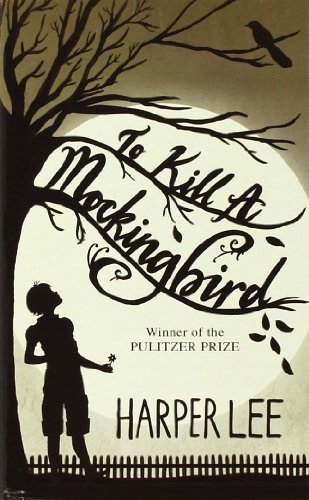All Nonfiction
- Bullying
- Books
- Academic
- Author Interviews
- Celebrity interviews
- College Articles
- College Essays
- Educator of the Year
- Heroes
- Interviews
- Memoir
- Personal Experience
- Sports
- Travel & Culture
All Opinions
- Bullying
- Current Events / Politics
- Discrimination
- Drugs / Alcohol / Smoking
- Entertainment / Celebrities
- Environment
- Love / Relationships
- Movies / Music / TV
- Pop Culture / Trends
- School / College
- Social Issues / Civics
- Spirituality / Religion
- Sports / Hobbies
All Hot Topics
- Bullying
- Community Service
- Environment
- Health
- Letters to the Editor
- Pride & Prejudice
- What Matters
- Back
Summer Guide
- Program Links
- Program Reviews
- Back
College Guide
- College Links
- College Reviews
- College Essays
- College Articles
- Back
To Kill a Mockingbird by Harper Lee
I highly recommend reading Harper Lee’s novel, To Kill a Mockingbird for several rationales; this book not only provides historical background knowledge of racism during the time, but also contains extremely sophisticated, almost mind-blowing, writing techniques that definitely help improve one’s reading and writing skills.
This novel is a realistic fiction on Scout’s view. It is set in the 1960s, when racism is common. Jem and Scout, two white little children living in a southern town of the United States, enjoy their youth under the protection of their lawyer father, Atticus Finch. They have fun with their friend Dill, playing diverse types of games, having discussions about the different lives they possess, having adventures of going into Boo Radley’s yard, the yard a legendary recluse of the town, and so on. Jem and Scout also face an unexpected situation, the one when Atticus defends a black man. Soon, through the accident, as the two mature, they get to realize the reality surrounding them and the cruel society they are living in.
Throughout the story, Lee leaves us with bountiful of messages; ‘you can’t truly understand a person unless you put yourself into his shoes’, do not kill mockingbirds, a metaphorical term of innocent and defenseless people, the world is unfair, keep fighting even though you know you would lose, and more. These messages were strong and direct, clearly delineated understandably in the story. The first lesson, for example, was exactly quoted in Atticus’s speech while the second one is covered by the quarter of the
book where Tom Robinson, the black man, is being judged in the court. Other than successfully inserting the messages to the readers, the novel also uses many literary elements so smoothly. To start, symbolism is a huge skill dealt in the book. The best example is the mockingbird, as stated above. The mockingbird symbolizes the innocent and defenseless people, Tom Robinson and Boo Radley. Also, personification can be seen in chapter 8, where it says ‘Fire silently devoured...’, ‘...eaten it’s way to the roof...’, and ‘...roaring house...’ Additionally, imagery was also utilized in the quote, ‘... window-frames were black against a vivid orange centre.’ As a huge fan of this book, I find absolutely no errors or unsuccessful elements in the book; it’s just perfection itself.
I, therefore, strongly suggest this book for all the explanations stated above, from messages/lessons to writing skills. Of course if I was to judge this book I would give it an infinite number, but out the score of 10, I would definitely give it full points.
Similar Articles
JOIN THE DISCUSSION
This article has 0 comments.

